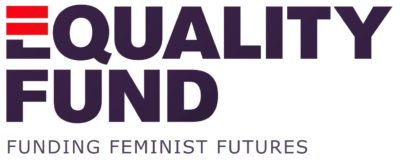
McLeod Group blog, June 13, 2019
Women Deliver, the world’s largest gathering on the health, rights, and well-being of women and girls, made headlines last week in Vancouver. Hosted by Canada, it was the setting for a major announcement by Maryam Monsef, Minister for Women and Gender Equality and Minister of International Development, of a contribution of $300 million towards the newly launched Equality Fund. The donation is specifically targeted to build gender-lens investment portfolios to raise funds for women’s organizations in the developing world.
The Equality Fund has already raised commitments of $100 million by bringing together philanthropists and investors. At the same time, the Minister announced up to $10 million each in matching funds for domestic groups through the Community Foundations of Canada, the Canadian Women’s Foundation and Grand Challenges Canada – for a total of $30 million domestically.
We are excited with this highly innovative approach to generating and leveraging major investments in women’s equality. But this would not be a McLeod Group blog if we didn’t note that “the devil will be in the details”. How will this investment by the Government of Canada in an investment fund be counted in terms of official development assistance? Is it new money for development or will it come from the existing budget? Will Global Affairs Canada’s current cumbersome, costly and time-consuming administrative processes for funding development cooperation have to apply? How will the matching fund work? What will be the role of Southern women’s organizations in decision-making and implementation? Who will be left out, and what will be the implications?
But we agree that the Equality Fund is a game changer, a disruptor that brings together women’s funds, community foundations, large philanthropic institutions, high net worth philanthropists, Canada’s largest bank, an impact investment fund and venture capital all gathered around a table to generate new money and assets to fund permanent change led by and for women around the world. Members of the Collective brought together by the Match International Women’s Fund include Oxfam Canada, World University Service of Canada, Community Foundations of Canada, the Canadian Women’s Foundation, the African Women’s Development Fund, the Royal Bank of Canada, Philanthropy for Advancing Women’s Human Rights, the Toronto Foundation, Calvert Impact Capital and Yaletown Partners.
Bringing the national and international streams together holds great promise for creating deep networks among women’s rights groups in the North and South, sharing knowledge, more leverage and even deep institutional change. The approach reinforces that a key principle of the international Sustainable Development Goals: that both developed and developing countries must work together to address social inequities and environmental crises. Canada is advanced in the area of legal rights of women but not in programming or holding governments and the private sector accountable for their decisions that affect women and girls. Cross-learning holds a lot of promise. The blended financing and the social-investment model of the fund could set an important precedent for social and environmental impact investment.
In the 1980s, core investments by Canada in organizations such as Women’s World Banking established the foundation for effective global financial services for women who are still thriving through small-scale entrepreneurs around the globe. The Equality Fund has the potential to bring many more resources to gender-lens investing around the world. We wish it well.
